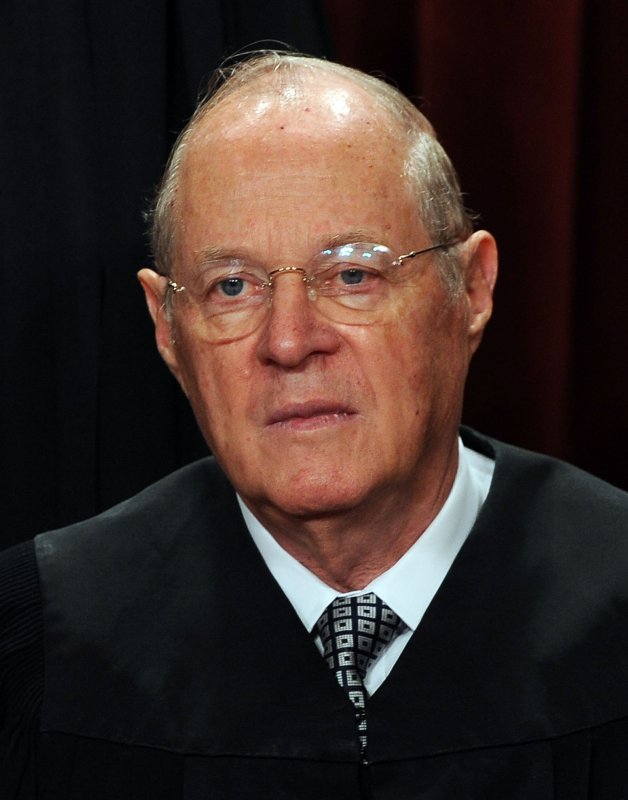Associate Justice Anthony Kennedy and the Supreme Court Justices of the United States sit for a formal group photo in the East Conference Room of the Supreme Court in Washington on October 8, 2010. UPI/Roger L. Wollenberg |
License Photo
WASHINGTON, April 26 (UPI) -- An Indian nation can't sue over the same issue in two courts, even if the courts individually couldn't provide full relief, the U.S. Supreme Court ruled.
The 7-1 opinion written by Justice Anthony Kennedy said two suits making the same claim are barred from the Court of Federal Claims if the suits are based on substantially the same facts, regardless of the relief sought, Scotusblog.com reported Tuesday.
The Tohono O'odham nation, which controls a 3 million-acre reservation along the Arizona-Mexico border, sued over assets the United States holds in trust for the tribe's benefit.
In the U.S. District Court for the District of Columbia, the nation sued federal officials responsible for managing the trust, claiming officials violated their fiduciary duty by providing an inaccurate accounting, improperly investing the assets held in trust and committing self-dealing, Courthouse News Service said.
A day later, the O'odham sued the government in the Court of Federal Claims over the same trust assets, only for damages. The Court of Federal Claims dismissed the suit for lack of jurisdiction, but the appeals court revived the case, finding the two suits must share operative facts and seek overlapping relief.
In his majority opinion, Kennedy said that the circuit court erred.
"Indeed, it appears that the nation could have filed two identical complaints, save the caption and prayer for relief, without changing either suit in any significant respect," Kennedy said.
The O'odham claim that federal law forced the tribe to choose between partial remedies had "no merit," Kennedy said.
"The nation could have filed in the [Court of Federal Claims] alone and if successful obtained monetary relief to compensate for any losses caused by the government's breach of duty," Kennedy wrote. "It also seems likely that Indian tribes in the nation's position could go to district court first without losing the chance to later file in the CFC."
After dismissing the CFC suit, the majority opinion advised the O'odham nation to refile its claim after dismissing the original case in District Court or waiting until that case is resolved, provided the statute of limitations hasn't expired.
Justice Sonia Sotomayor wrote an opinion in which she and Justice Stephen Breyer concurred with the judgment but not how it was reached. Justice Elena Kagan did not participate. Justice Ruth Bader Ginsburg dissented.















